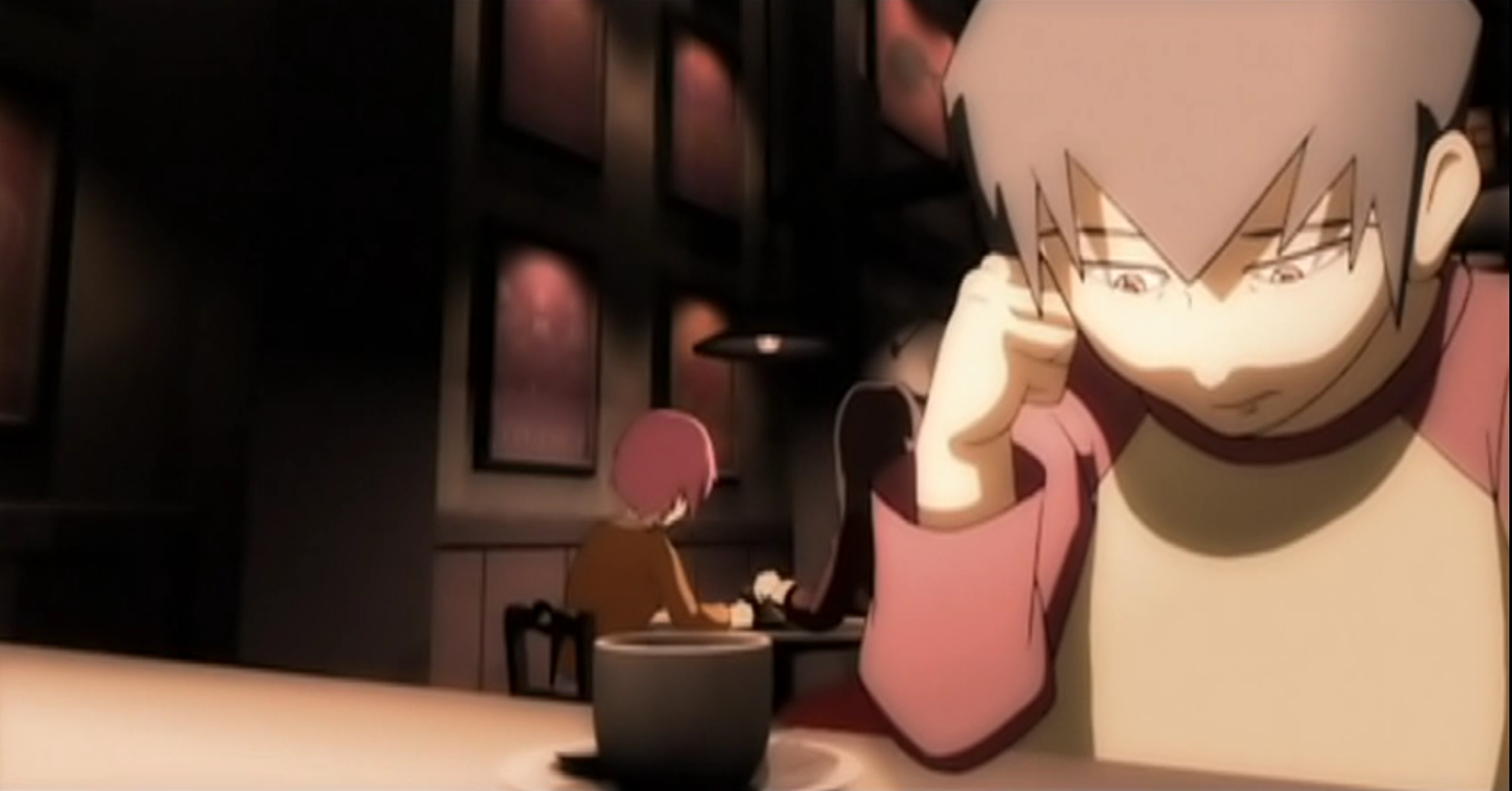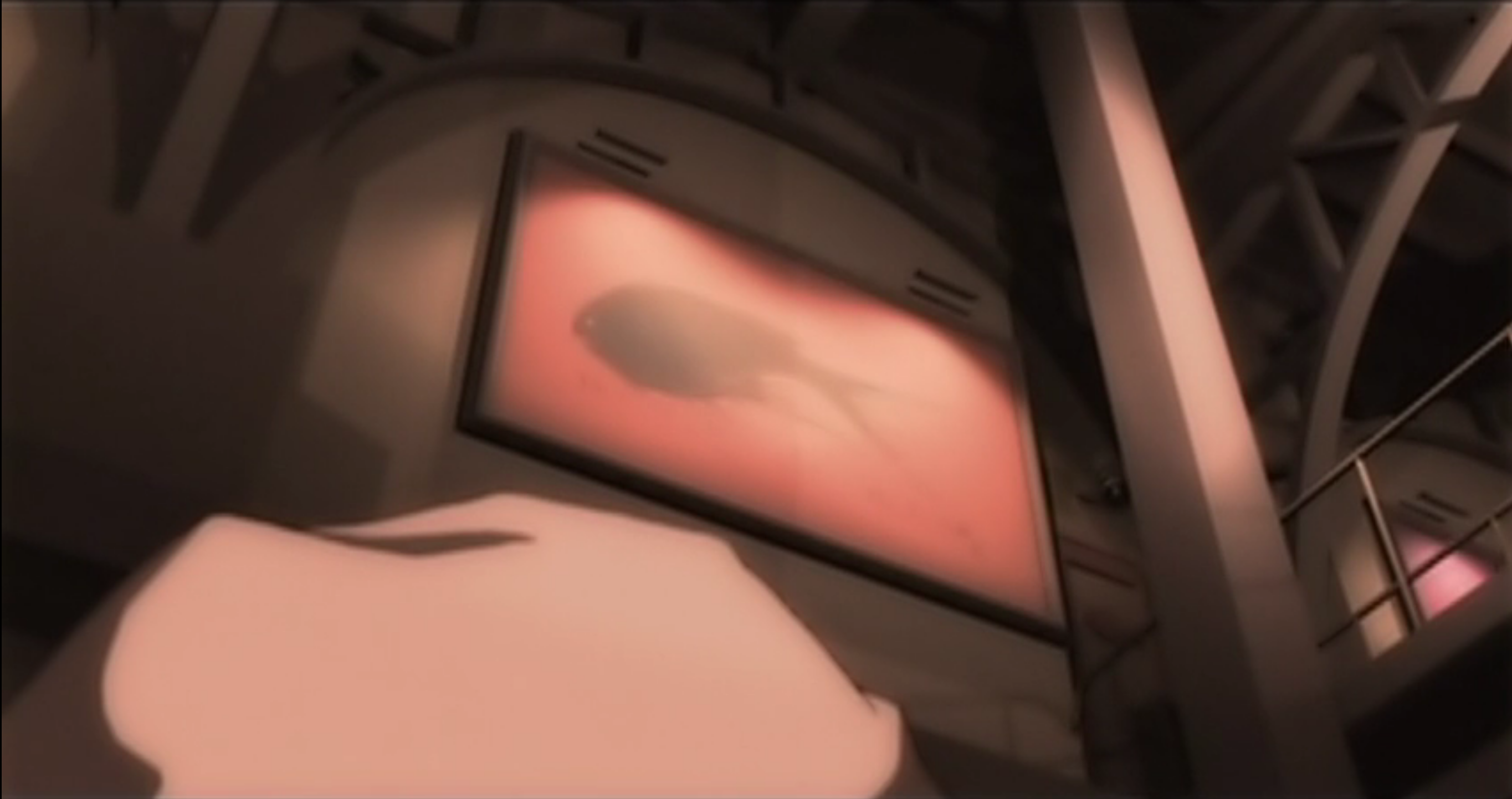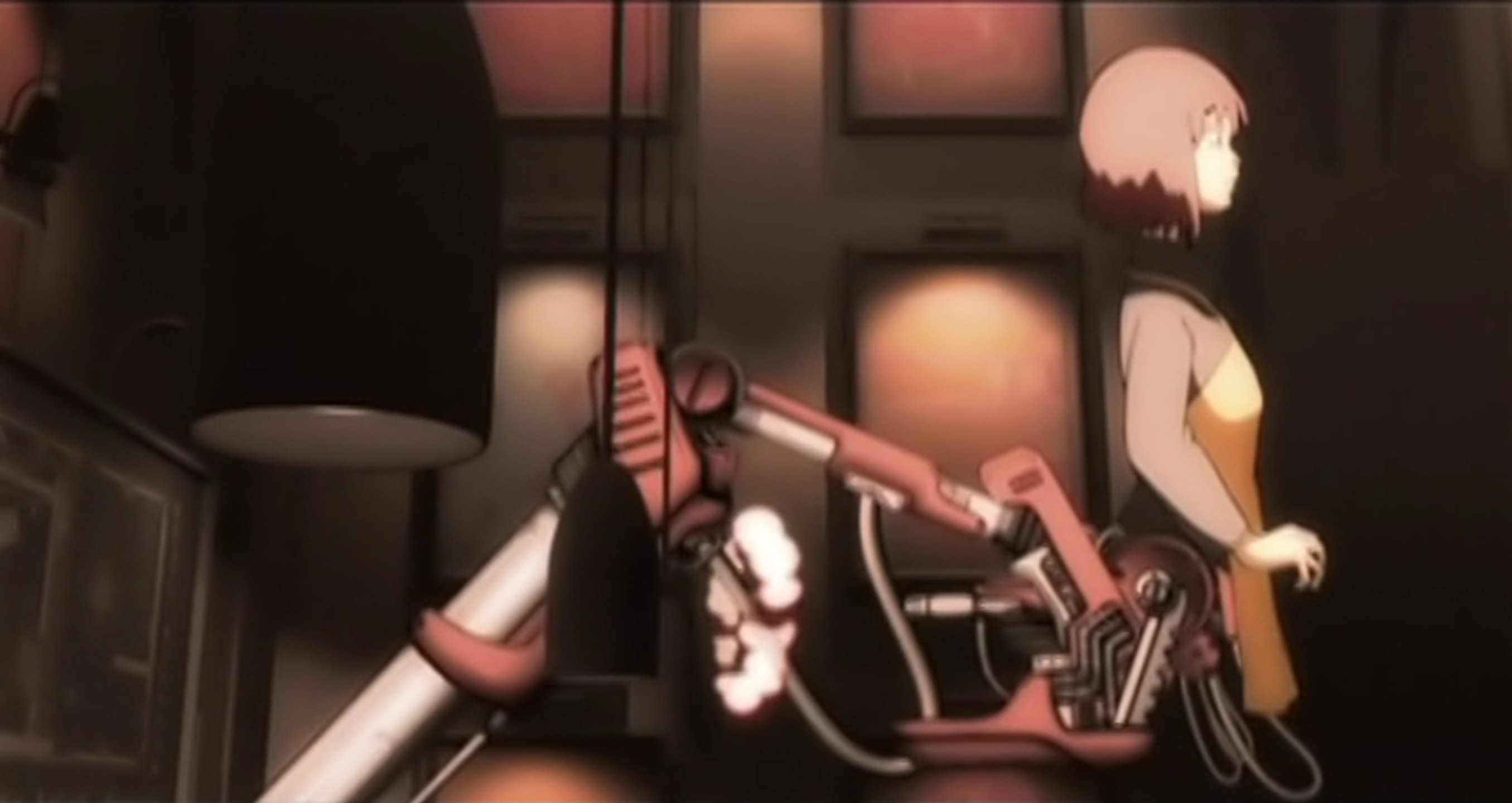Aquatic Language (Mizu no Kotoba) is a 9-minute short directed by Yasuhiro Yoshiura (Time of Eve) in 2002. The short went on to win the Excellent Work Award at the Tokyo International Anime Fair the following year. The film is set in a café where several people spend their evening drinking coffee and talking to their friends. These include two gossiping girls, two debating men, a bookworm, and a boy who just broke up with his girlfriend. While the café initially appears to be like any other, it’s slowly revealed that something strange is happening inside its walls.
Aquatic Language is an interesting project, not only due to the sense of mystery that it holds throughout its narrative but also thanks to its take on conveying dialogue throughout each scene. Every moment contains a variety of conversations that are happening simultaneously, which gives viewers a sense of being in the café themselves. With each viewing, audiences are able to discover more information and understand the ONA’s plot on a deeper level than they might have done on the first watch.
What Are the Visitors Talking About?
The discussions taking place within the café greatly range in their subject matter. The boy at the bar laments about the recent breakdown in his relationship, in which his girlfriend left him due to an argument, and attempts to receive encouragement from the café’s barista. At the same time, two girls gossip about the relationships that their friends are in and comment on the intricacies of language. This is a theme that runs throughout the short, in which several characters discuss how words have power. At times, these characters can even be heard repeating phrases (for example, "Out of all the people I've met, you’re the one I’m most compatible with") that others have spoken earlier.
Throughout these conversations, viewers will be treated to famous literary quotes, ranging from Isaac Asimov’s I, Robot to Jules Vernes, 20,000 Leagues Under the Sea, which are being read by one of the café's occupants. Each of these passages references the subject being discussed by other customers and provides hints about the mysteries that are hidden within the café.
It’s like we’re looking at the glass of a gigantic aquarium, staring at the crystal glass. - 20,000 Leagues Under the Sea by Jules Vernes.
Two men have a debate about a picture of a large fish that adorns one of the walls inside the café. The larger (and rather slow) man tells his companion how, during his previous visit, the aquatic creature suddenly left its frame, to which the other informs him that this is impossible. However, as the short progresses, this incident happens again. Later, viewers come to learn that the café itself is an aquarium (which can either be taken literally or metaphorically) that houses not only a fish but the conversations that are taking place.
Artificial Intelligence and Robotic Creatures
Similar to the fish subplot, artificial intelligence and robotic creatures take up a significant proportion of the conversations that take place. On initial viewing, references to classic sci-fi literature and any background chatter that mentions key terminology will likely be taken at face value. However, as Aquatic Language progresses, it becomes clear that androids and the issues that surround them are at the core of its design.
The Three Laws of Robotics, First Law: A robot may not injure a human being, or, through inaction, allow a human being to come to harm. - I, Robot by Isaac Asimov.
The ONA’s big reveal is that the café’s barista is an android who has been created to serve those who visit. While at first, this might surprise those watching, this hidden item quickly becomes apparent when watching Aquatic Language the second time around. In one scene, the boy sitting at the counter and a gossiping girl suddenly become startled when talking to the barista. Initially, viewers are led to believe this is something she has said; however, this is the moment when they realize she isn’t human.
Although Aquatic Language isn’t as refined as Time of Eve, Yoshiura does a good job of creating interesting characters and dialogue-driven scenes in a short space of time. While the meaning behind certain narratives is left unclear, this ultimately adds to the work's overall charm. The short manages to create a lively atmosphere that closely resembles that of a real café, while the ambiguity of its characters' state of mind enables viewers to question what it might be like to live in a world where humans and androids co-exist.



